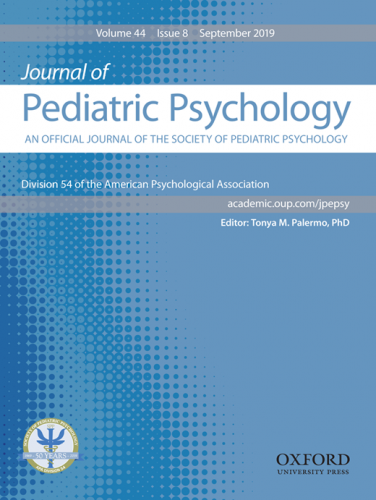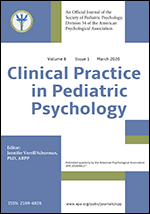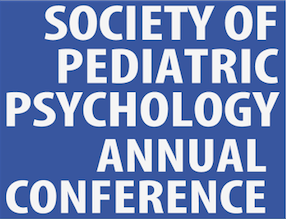Fact Sheet: Pediatric Feeding Problems
Pediatric Feeding Disorders have lacked a universally accepted definition or set of diagnostic criteria, and this has impeded research efforts and clinical advancements. Recently, an expert multidisciplinary consensus group proposed that Pediatric Feeding Disorder be defined as impaired oral intake that is not age-appropriate and is associated with medical, nutritional, feeding skill, and/or psychosocial dysfunction. Contributors to and the outward manifestation of Feeding Disorder fall in these domains. In the psychosocial realm, Feeding Disorders present as learned aversion to food, stress in the child and/or caregiver, disruptive mealtime behavior, food selectivity, failure to advance to an age-typical diet, and caregiver use of maladaptive strategies to improve mealtime behavior. The key distinction between Feeding and Eating Disorders is that for Eating Disorders the mealtime dysfunction related to food is related to body image, whereas in Feeding Disorders the difficulties with feeding are not.
Prevalence and Course
Feeding Disorders are seen most frequently in children birth to age 3 but can affect children of all ages and persist into adulthood if unaddressed. It is difficult to determine prevalence due to the heterogeneous nature of this patient population and limited consensus regarding diagnostic criteria. Best available research indicates that feeding problems are seen in 25 to 45 percent of the general population, in as high as 80 percent of children with developmental disabilities, and in 40 to 70 percent of children with chronic medical conditions.
Health and Psychosocial Consequences
Feeding Disorders and resultant nutritional deficits can adversely impact physical (e.g., weight gain, growth, nutritional status), social (e.g., parent-child interaction, peer relations), emotional (e.g., parent/child stress, behavioral dysregulation), and cognitive function (e.g., diminished cognitive function, attention deficit).
Evidence-based Assessment
Pediatric Feeding Disorders require multidisciplinary assessment to identify contributors and symptoms in each domain. Psychosocial assessment includes evaluation of the following contributors: developmental, mental and behavioral health problems in caregiver and/or child, social, and environmental. Optimally, assessment includes medical record review, clinical interview, standardized questionnaires, and mealtime observation. The most common disciplines included in interdisciplinary feeding evaluations include a physician, dietitian, occupational therapist or speech language pathologist, and psychologist. A review of empirically supported assessment tools is available in Poppert et al., 2015 or Martin et al, 2014.
Culture, Diversity, Demographic and Developmental Factors
The impact of race and ethnicity on prevalence and course of pediatric feeding disorders has not been well-studied, and many intervention studies do not report race and ethnicity. From the available literature, Feeding Disorders seem to be equally prevalent in males and females from birth to age 10.
Evidence-based Interventions
The best available evidence supports that positive outcomes are achieved with implementation of behavioral interventions that include nutritional manipulation. Antecedent and contingency management, appetite manipulation, differential attention, escape prevention, and systematic desensitization are core treatment components. In terms of intervention environment, inpatient and day treatment programs have the most available support for positive outcomes. Study of less intensive intervention environments is ongoing with fewer published studies of outcomes.
Resources
- American Society for Parenteral and Enteral Nutrition
- North American Society for Pediatric Gastroenterology, Hepatology & Nutrition
- American Speech-Language-Hearing Association
- Feeding Tube Awareness Foundation
Author: Colleen Lukens, Ph.D.
Date of Last Update: January, 2020
References
- Goday, P. S., Huh, S. Y., Silverman, A., Lukens, C. T., Dodril, P., Cohen, S. S., Delaney, A. L., Feuling, M. B., Noel, R. J., Gisel, E., Kenzer, A., Kessler, D. B., Kraus deCamargo, O., Browne, J., & Phalen, J. A. (2019). Pediatric Feeding Disorder: consensus definition and conceptual framework. Journal of Pediatric Gastroenterology and Nutrition, 68(1), 124-129. doi: 10.1097/MPG.0000000000002188
- Greer, A. J., Gulotta, C. S., Masler, E. A., & Laud, R. B. (2007). Caregiver stress and outcomes of children with pediatric feeding disorders treated in an intensive interdisciplinary program. Journal of Pediatric Psychology, 33(6), 612-620.
- Lukens, C. T. & Silverman, A. H. (2014). Systematic review of psychological interventions for pediatric feeding problems. Journal of Pediatric Psychology, 39(8), 903-917. doi: 10.1093/jpepsy/jsu040.
- Maddux, M. H., Deacy, A. D., & Lukens, C. (2104). Assessment resources. In C. Martin & T. Dovey (Eds.). Paediatric gastrointestinal disorders: a psychosocial perspective (pp. 294-307). City, ST: Publisher
- Poppert, K. M., Patton, S. R., Borner, K. B., Davis, A. M., & Dreyer Gillette, M. L. (2015). Systematic review: mealtime behavior measures used in pediatric chronic illness populations. Journal of Pediatric Psychology, 40(5), 475-486. doi: 10.1093/jpepsy/jsu117
- Sharp, W. G., Volkert, V. M., Scahill, L., McCracken, C. E., & McElhanon, B. (2017). A systematic review and meta-analysis of intensive multidisciplinary intervention for pediatric feeding disorders: how standard is the standard of care? Journal of Pediatrics, 181, 116-124. doi: 10.1016/j.jpeds.2016.10.002



